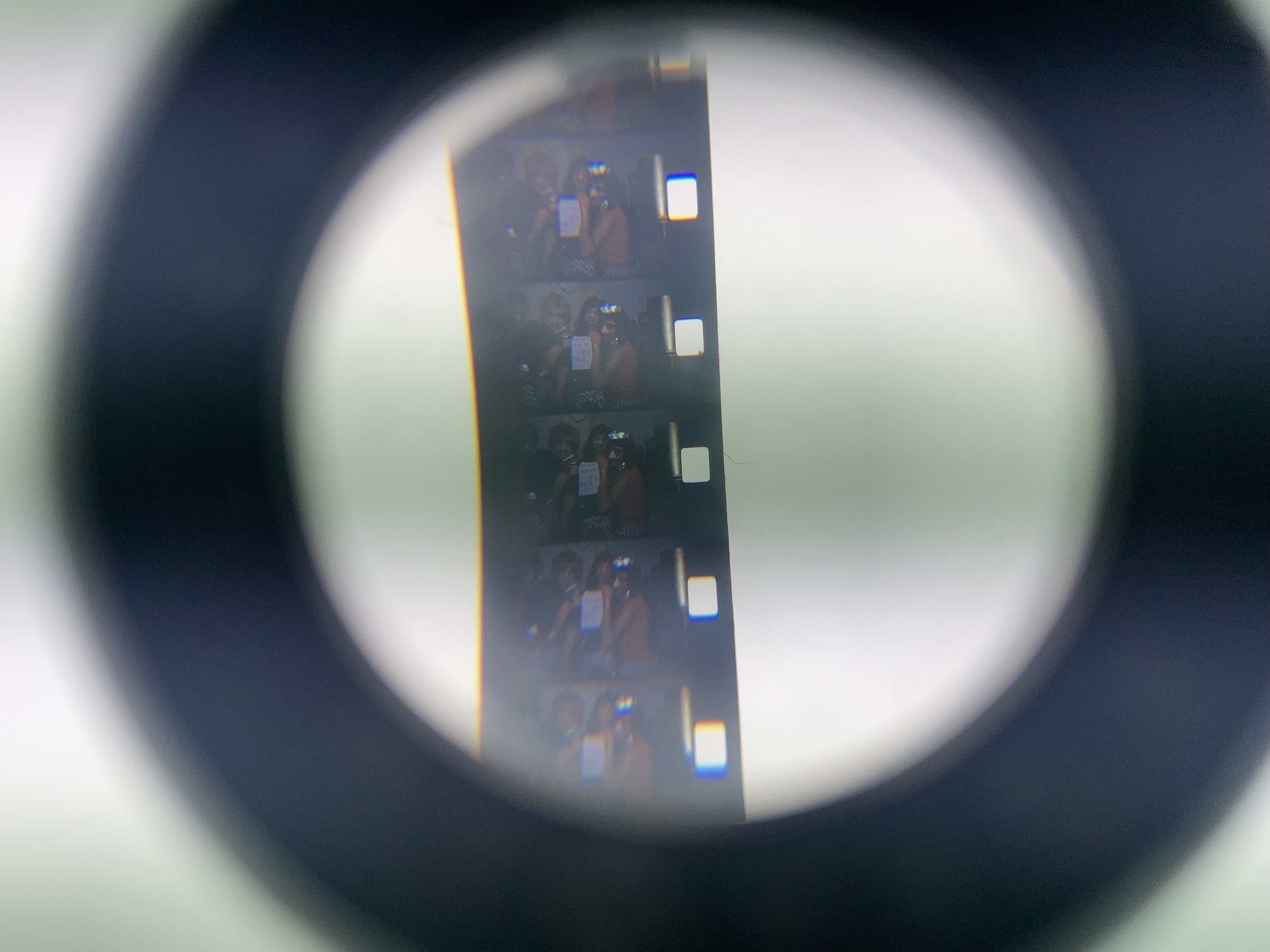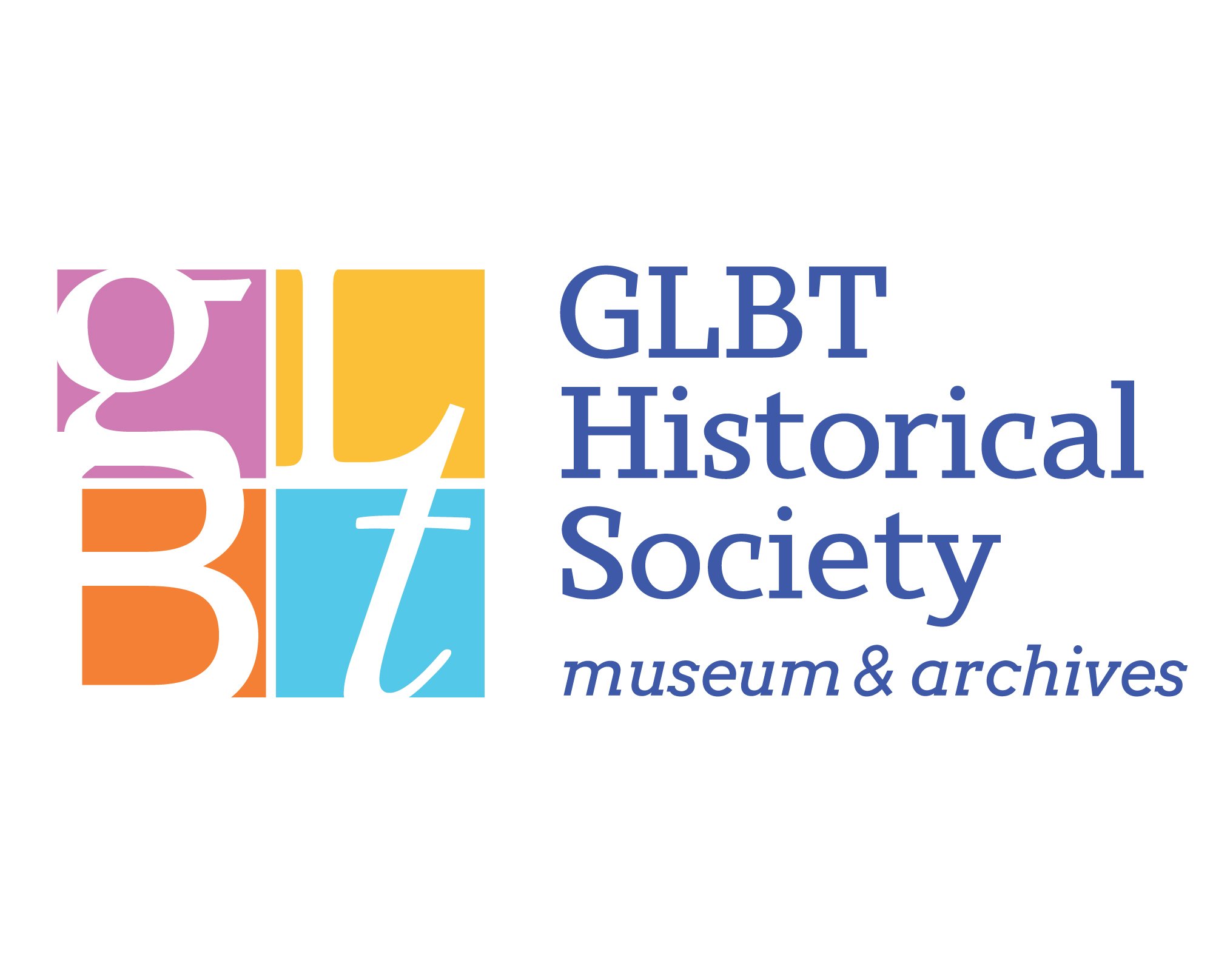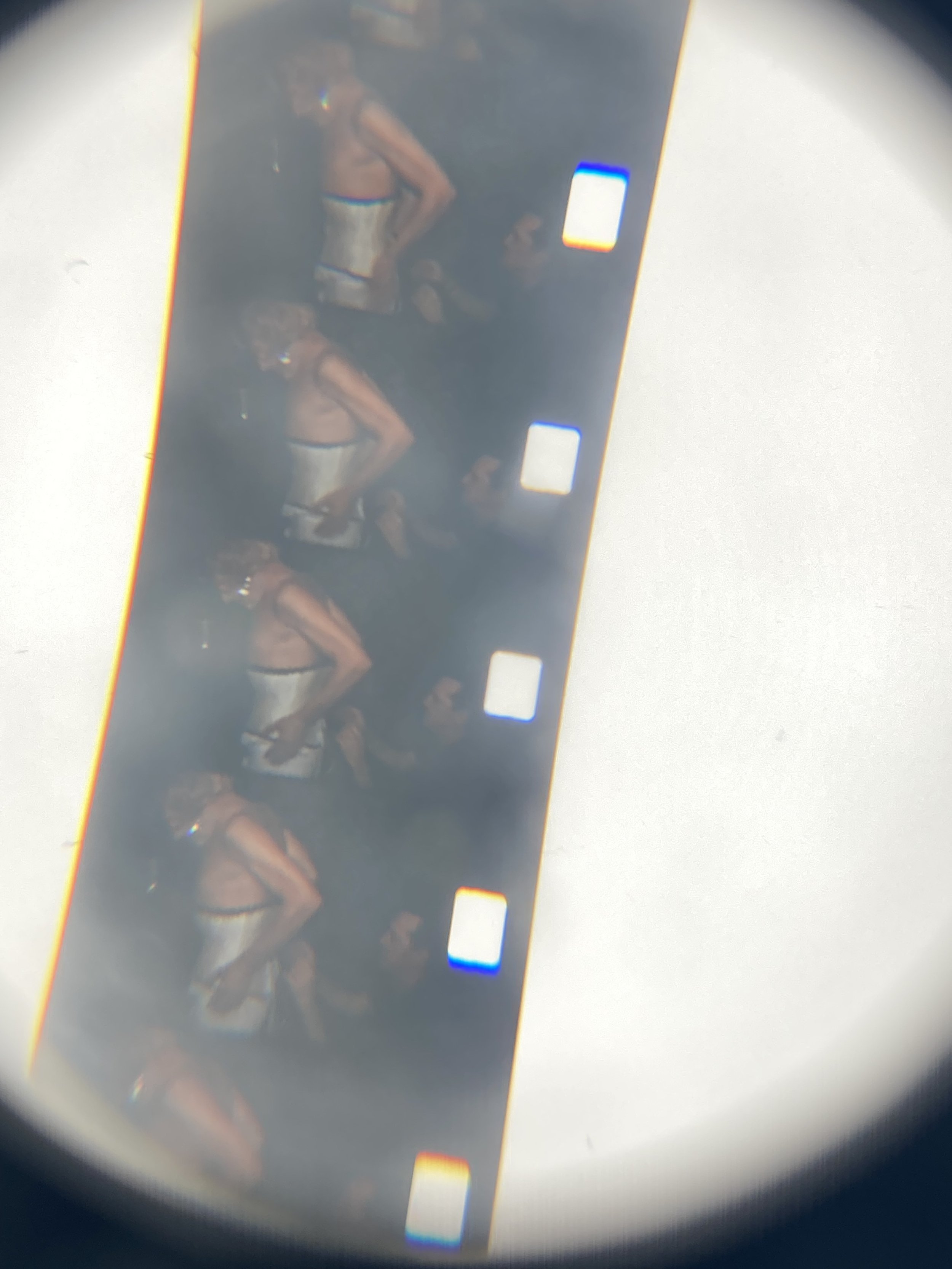Larry Buttwinick Film Collection
Photograph: Illuminated Super 8mm film still through magnifier loupe. Larry Buttwinick collection (#2006-44), Courtesy of Gay, Lesbian, Bisexual, Transgender Historical Society. Image subject to copyright laws.
CONSERVATION & CAPTURE
Grant year: 2022
Grant category: Al Larvick National Grant
Grant recipient: Gay, Lesbian, Bisexual, Transgender Historical Society
Collection title: Larry Buttwinick Film Collection
Primary maker(s): Larry Buttwinick
Original format: Super 8 film, color, silent
Circa: 1965-1975
Collection size: One reel of approximately 400 feet of film; still photographs, costumes and ephemera
Grant support: Cleaning and repair and digital capture of approximately 400 feet of Super 8mm film
Digital capture format: Scanned at 2k resolution
Lab: Pro8mm
Status: Conservation and digitization completed
Online Access: Coming soon
Creative Commons License: Attribution-NonCommercial-ShareAlike 4.0 International: http://creativecommons.org/licenses/by/4.0/
GRANTEE
Founded in 1985, the Gay, Lesbian, Bisexual, Transgender (GLBT) Historical Society is recognized internationally as a leader in the field of LGBTQ public history. Our operations are centered around two sites: our GLBT Historical Society Museum, located since 2011 in the heart of San Francisco’s Castro neighborhood; and our Dr. John P. De Cecco Archives and Research Center, open to researchers in the Mid-Market district. Our mission is to collect, preserve, exhibit and make accessible to the public materials and knowledge to support and promote understanding of LGBTQ history, culture and arts in all their diversity. You can learn more about our organization, search collections, browse online resources, and more on our website at www.glbthistory.org.
The Dr. John P. De Cecco Archives and Special Collections of the GLBT Historical Society are among the largest and most extensive holdings in the world of materials pertaining to LGBTQ people, occupying more than 4,000 linear feet of storage. Broadly speaking, our over 1,000 collections include personal papers, organizational records, periodicals, oral histories, photographs, audiovisual recordings, ephemera, artifacts and works of art.
Photograph: Larry Buttwinick in drag (on left), Baroness Eugenia von Dieckoff (on right), and companions, undated, Larry Buttwinick collection (#2006-44), Courtesy of Gay, Lesbian, Bisexual, Transgender Historical Society. Image subject to copyright laws.
FILMMAKER
Larry Buttwinick (1924-2004) was a gay Jewish man and an original member of the Imperial Court of San Francisco. His life intersected with prominent LGBTQ figures such as José Sarria (drag star, political activist, and founder of the Imperial Court) and Henry Diekow (a drag artist also known as the Baroness Eugenia von Dieckoff). Buttwinick was born in the Boyle Heights neighborhood of Los Angeles in 1924 and served in World War II before moving to San Francisco in 1954, where he remained until his death in 2004. He was also a member of the Society for Individual Rights (SIR), an early gay and lesbian rights organization, and one of the founders of the Lavender Seniors of the East Bay.
COLLECTION
The film reel comes from the Larry Buttwinick collection at the GLBT Historical Society. The reel appears to contain footage of a drag party in San Francisco, circa 1965-1975. The Larry Buttwinick collection also contains photographs of Buttwinick and companions in drag in the 1950s-1970s, drag costumes, and paper ephemera.
Photograph: Illuminated Super 8mm film still through magnifier loupe. Larry Buttwinick collection (#2006-44), Courtesy of Gay, Lesbian, Bisexual, Transgender Historical Society. Image subject to copyright laws.
Buttwinick was part of the original Imperial Court of San Francisco, which is one of the oldest LGBTQ organizations in the world and a vital part of drag history and culture. The Imperial Court was founded in San Francisco by José Sarria in 1965. It started as a gay community social club with a camp imperial theme, including the election of an emperor and empress and the selection of a royal court. Today, the Imperial Court System has grown into a network of non-profit charitable organizations throughout the world, with participants focused on drag performance along with LGBTQ advocacy and philanthropy.
Drag has a long history within the LGBTQ community and has played a central role in building community and providing an outlet for self-expression. Archival footage like this documents the long tradition of drag and showcases how the aesthetics of the art have evolved over the years. Furthermore, films like these, with intimate portrayals of queer friendship, joy, and craft, evidence the thriving LGBTQ community in the very early years of the gay liberation movement.




